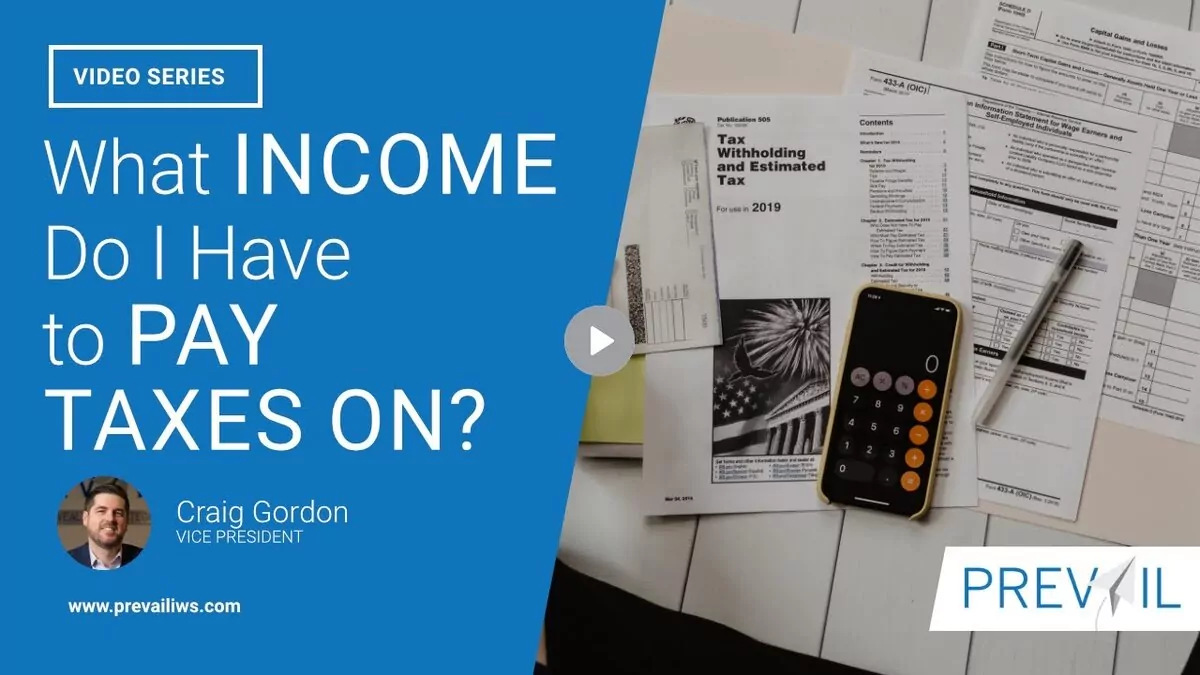Understanding Taxes: How to Navigate Income and Tax Liability
The world of taxes can often feel overwhelming, especially when trying to determine which forms of income are taxable and which aren’t. It’s essential to stay informed about the nuances of paying taxes and to consult with a CPA or tax professional to make the most out of your money. Let’s break down key questions about income taxes to help you better understand your tax responsibilities.
What Are the Main Types of Taxable Income?
Income tax is calculated based on how your income is generated. There are three primary categories of taxable income: earned income, unearned income, and retirement income.
Earned Income
Earned income includes the wages or salaries you receive from employment or self-employment.
Examples of earned income:
- Wages, salaries, and tips
- Gig economy work (e.g., ridesharing or food delivery services)
- Income from self-employment
If you’re wondering, “Do I have to pay taxes on side hustles?”—the answer is yes. Any income you earn, even from part-time or freelance work, is taxable and should be reported on your tax return.
What is Unearned Income, and Is It Taxable?
Unearned income, often referred to as passive income, includes earnings that don’t come from active work.
Examples of unearned income:
- Real Estate Income: Rental properties or income from business partnerships fall under this category. Real estate investments are popular because they can generate passive income and often provide tax advantages compared to traditional stock market investments.
- Portfolio Income: This includes dividends, interest, and capital gains from stock market investments or brokerage accounts.
You may ask, “Are capital gains taxed the same as wages?” No, they are typically taxed at different rates depending on whether they are short-term or long-term gains.
Is Retirement Income Taxed?
Retirement income can be partially or fully taxable depending on the source.
Common sources of taxable retirement income:
- Social Security benefits
- Pensions
- Withdrawals from retirement accounts like 401(k)s and traditional IRAs
A frequently asked question is, “Are all Social Security benefits taxable?” Not necessarily. The portion of your Social Security income that is taxed depends on your total income and filing status.
What Types of Income Are Not Taxable?
Not all income is subject to taxes. Here are examples of income that is generally not taxed:
- Inheritance
- Bequests or large gifts (although the giver may need to pay gift tax)
- Life insurance proceeds
- Distributions from Roth IRAs
- Health Savings Account (HSA) withdrawals used for qualified medical expenses
- 529 plan withdrawals for eligible educational expenses
- Loans from the cash value of a life insurance policy
For instance, many people ask, “Are life insurance payouts taxable?” The good news is that beneficiaries typically do not pay taxes on life insurance proceeds.
Why Is Understanding Tax Liability Important?
Understanding how and when you’re taxed is crucial for avoiding unnecessary penalties and optimizing your finances. For example, receiving a large gift might not require you to pay taxes, but the individual gifting it to you may need to pay a gift tax.
Additionally, knowing the tax treatment of your income helps you plan strategically. Questions like, “How can I minimize taxes on passive income?” or “What tax benefits come with real estate investments?” should guide your financial strategy.
How Prevail Helps You Manage Your Taxes
At Prevail, we prioritize your financial well-being by staying on top of ever-changing tax laws and helping you navigate the complexities of paying taxes. Our goal is to ensure you keep more of your hard-earned money through proactive strategies, including:
- Using pre-tax, post-tax, and tax-free vehicles to diversify your income streams
- Leveraging tax-advantaged investments like real estate and Roth IRAs
- Offering year-round tax preparation and planning to help you stay ahead
If you’ve been asking yourself, “How do I pay less in taxes legally?” or “What steps can I take to maximize my after-tax income?”—our team is here to guide you.
Frequently Asked Questions About Taxes
- What is the difference between earned income and unearned income for taxes?
Earned income is actively worked for, like salaries or wages, while unearned income includes passive streams like real estate rentals and dividends. - How can I reduce my taxable income?
You can reduce taxable income by contributing to pre-tax accounts like 401(k)s or HSAs, investing in tax-advantaged vehicles like Roth IRAs, and taking advantage of deductions and credits. - Do I need to pay taxes on rental income?
Yes, rental income is taxable. However, you may deduct certain expenses like property maintenance, mortgage interest, and depreciation, which can reduce your tax liability. - Are there penalties for not paying taxes on side income?
Yes. Failing to report and pay taxes on side income, such as freelance work or gig economy earnings, can result in penalties and interest from the IRS. - How do I know if my Social Security benefits are taxable?
The IRS determines taxation on Social Security benefits based on your total income and filing status. Consulting a tax professional can help clarify your specific situation.
Final Thoughts
Taxes don’t have to be overwhelming when you have the right team and tools to guide you. At Prevail, we are committed to helping you navigate your tax obligations while maximizing your financial potential. From income categorization to strategic tax planning, our advisors are ready to assist you every step of the way.
If you want to learn more about how to minimize your tax liability and build a diversified wealth strategy, contact our team of advisors today. Let’s work together to keep more of what you’ve earned!
Email: riseabove@prevailiws.com | Phone (913) 295-9500
Discover smarter ways to manage your income and taxes with Prevail!

















